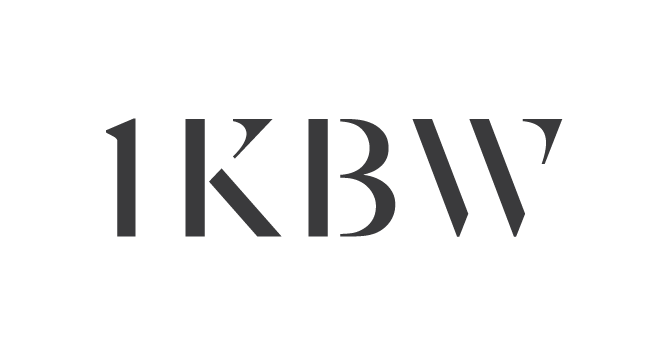Knowledge Hub
Join the Conversation!
Impartial and independent, ThoughtLeaders4 HNW Divorce Knowledge Hub hosts cutting edge industry content and insight.
Email maddi@thoughtleaders4.com to submit content.
Crypto: The good, the bad, and the misunderstood
Date: 12/09/2024 Type: Articles Topic: FIRE | Insolvency | Civil Fraud | International | Enforcement | Offshore | Asset Recovery | Disputes | Shareholder Diputes | Digital Dispute Resolution | Libor | In-House | Crypto | International Arbitration | Litigation Funding | Future of Dispute Resolution | Witness Familiarisation | ESG |With crypto accounting for the wealth of 17 billionaires in 2024, and cryptocurrency revenue expected to exceed US$3 trillion by 2026, it might be easy to think that the biggest problem for crypto owners is deciding how to spend their fortunes.
However, while cryptocurrencies have gained significant popularity and recognition, they are still far from being universally accepted as a means of payment. For most day-to-day purchases, such as groceries, rent, utilities, and other essential expenses, or luxury assets such as yachts, property, and aircraft, traditional (“fiat”) currency remains the only viable option in most cases, (although some third parties are beginning to support these purchases with crypto payment).
Born out of a desire for decentralised, borderless, and permissionless financial systems, wealth accumulated via cryptocurrency poses a significant challenge for traditional finance (TradFi) institutions, including banks.
Crypto owners wanting to use their digital wealth in the real world will need to accept that – in most cases – engaging TradFi institutions will be a necessity. However, off-ramping (the process of transferring cryptocurrency into physical wealth) is far from an easy journey, particularly with a lag in some cases between TradFi knowledge and the ongoing advancement in security and regulation in the crypto sphere.
TradFi disputes
One of the biggest challenges facing crypto owners is TradFri institutions disputing the authenticity and security of digital wealth. While crypto owners currently need TradFi institutions, the same is not true in reverse – at least, not yet.
TradiFi service providers have, so far, had the freedom to simply decline to engage with clients with digital wealth and assets. And there were – and in some instances still are – legitimate reasons for this stance, including risks associated with a decentralised market, compliance challenges, market volatility, and security concerns.
Decentralisation
Cryptocurrencies, unlike fiat money regulated by central banks, are created through decentralised processes like mining (Bitcoin) or pre-mined tokens (many altcoins like Ripple). This decentralisation challenges TradFi providers, who rely on centralised control and regulation. Many banks argue that, without a central authority, there's a lack of accountability, raising concerns about fraud, market manipulation, and illicit activities.
The TradFi sector often disputes the authenticity of crypto because it doesn't follow traditional centralised financial norms. Additionally, while blockchain wealth is recorded on an immutable ledger, its pseudonymous nature (where the real-world identity of the individual is not directly revealed) complicates source-of-wealth checks, often requiring the assistance of a specialist service provider.
Compliance issues
A major point of contention is the regulatory uncertainty surrounding cryptocurrencies. Unlike traditional finance, which operates under strict regulatory frameworks like anti-money laundering (“AML”) laws and know-your-customer (“KYC”) requirements, cryptocurrencies often exist in a regulatory grey area. This lack of clear regulations can make TradFi institutions wary of crypto transactions, fearing potential legal and financial risks. High-profile cases of illegal activity, such as the 2022 FTX collapse, have deepened scepticism about crypto's legitimacy and security. The inability to ensure compliance with AML and KYC regulations remains a significant barrier for banks in accepting crypto as authentic money.
Volatility
The notorious volatility of cryptocurrencies further fuels doubt among TradFi providers. Unlike relatively stable fiat currencies backed by government guarantees, cryptocurrencies experience wild price fluctuations, often driven by speculation rather than economic fundamentals. Some TradFi institutions argue this speculative nature undermines crypto's authenticity as money. Traditional finance expects money to be a stable store of value, unit of account, and medium of exchange—criteria cryptocurrencies struggle to meet, leading banks to question their legitimacy as "money" in the traditional sense.
Security concerns
Security is another critical issue where TradFi and cryptocurrency diverge. Despite enhanced features like cryptography and blockchain, cryptocurrencies aren't immune to risks. Hacking incidents– such as the McDonald’s incident in August - exchange failures, and irreversible transactions have raised alarms in the TradFi community.
Counterarguments
Where concerns raised by the TradFi sector may have had a place at the emergence of the crypto market, enhanced security, checks and balances and regulations are evolving as rapidly as the crypto market itself. Today, most of the TradFi arguments can be countered with the advancements being made in crypto.
For example, crypto hacks reduced by an estimated 70% through 2023 compared to the prior year, according to crypto AML service provider Hoptrail. In the same year, the TradFi financial data security saw an average data breach cost surge to US$4.45m, a 2.3% increase from the prior year. In May this year, a hacker claimed to have stolen sensitive data from HSBC and Barclay’s in the UK, highlighting that TradFi banks are also susceptible to cyberattacks.
A lack of regulation is an issue that is being resolved with ongoing global efforts, such as the International Organisation of Securities Commissions laying out 18 recommendations for global rules on managing crypto and digital assets.
While pseudonymity is often cited as a risk by many TradFi institutions, the immutable nature of blockchains ensures that all transactions are permanently recorded and traceable, providing a transparent and verifiable history that can help mitigate concerns about illicit activities.
Solutions
While the divide between decentralised and TradFi persists, trustees can bridge the gap, helping crypto owners use their wealth. A regulated trustee with cryptocurrency expertise can perform vital source-of-wealth checks, reassuring third-party providers. However, finding an experienced firm is challenging, as many shy away from the risks. Clients should consider whether the provider has proven experience, strong corporate governance, risk mitigation capabilities, a dedicated crypto team, a robust network for AML checks, and adherence to the highest compliance standards to gain TradFi institutions' confidence.
Conclusion
Despite the impressive wealth accumulated by cryptocurrency owners and its growing economic impact, significant challenges remain. TradFi institutions grapple with issues of legitimacy, volatility, and regulatory uncertainty surrounding cryptocurrencies.
As regulations and security measures within the crypto sphere continue to increase, it is likely that scepticism and disputes over legitimately from the TradFi sector will decrease. A reluctance from some TradFi institutions, while understandably frustrating for crypto owners, is not an insurmountable barrier in off-ramping, and can be addressed with continued efforts in education and transparency. Effective solutions for crypto owners hinge on finding trustworthy professional partners who can navigate these complexities and facilitate the use of digital wealth, at least until off-ramping through TradFi institutions becomes common place, trusted and seamless.
Author
Saffery Trust Associate Director Nicky Kendall and Manager Rory Jones (Digital Asset & Cryptocurrency Team)
Our HNW Divorce Corporate Partners















